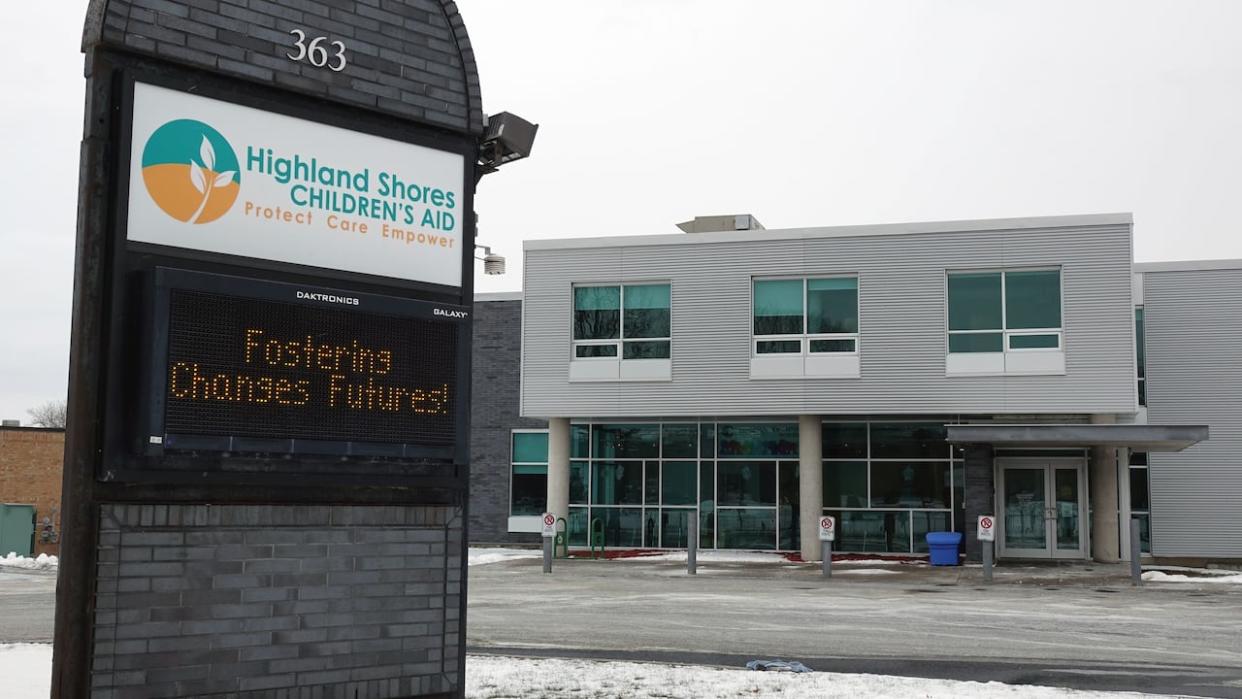Youth spending months in hotels, Airbnbs amid Ontario's foster home shortage

A youth in the Belleville area has been shuttled between a series of hotels and Airbnbs since November while staff with Highland Shores Children's Aid (HSCA) desperately seek out safe, stable accommodation for the kids in its care.
A shortage of licensed beds at foster homes and treatment centres has forced agencies across Ontario to turn to motels, cottages and even office spaces, according to HSCA's executive director Jess Uddenburg.
The situation leaves children and youth who are already vulnerable or have unique needs in an environment that places both them and the adults watching over them at risk.
"We've moved from it being a crisis to it being chronic across the province," said Uddenberg, whose team has run into the problem multiple times in recent years.
In HSCA's experience, the young people involved are typically between the ages of 11 and 15.
They also tend to have a challenging profile — being prone to conflict or struggling with suicidal ideation, for example. That can make them difficult to place, Uddenburg said.
He added that in some cases the organization has called more than 40 potential placements without managing to find a space.
When that happens, staff work out a schedule involving two caregivers working in shifts to keep an eye on the youth around the clock, often for weeks at a time, until a more suitable placement opens up.

HSCA executive director Jess Uddenberg says the organization has had to house multiple youth in hotels or Airbnbs while trying to find a licensed foster home or treatment centre to care for them. (Dan Taekema/CBC)
Uddenberg has worked one of those shifts. Youth who find themselves in care likely had some sort of breakdown with family and are already missing a sense of belonging, he said.
While staff do their best, he said a hotel room doesn't offer much privacy and rotating shifts can make it difficult for workers to connect with a young person.
"You're trying to support them, create some sort of family-based feeling, but you can't really do a lot of home-cooked meals on a kitchenette," Uddenberg said.
"There's no programming, there's no getting them the interventions and the support and the structure that youth needs to progress."
Concerns for safety of youth, staff
Uddenberg said he finds it "shocking" that when a licensed home equipped to handle high-risk youth can't be found, the alternative seems to be placing them in a hotel, describing it as an "unreasonable situation."
Ceri Jagt has concerns about the approach, too.
She's a front-line worker for HSCA and president of CUPE Local 2197, which represents the agency's staff members.
Jagt said the hotel shifts put staff and youth in close quarters, and the intake workers and case managers stepping up may lack experience handling certain situations, which can put both them and the young people they're looking after in danger.
"We aren't trained in the way we need to be to address the concerns these kids have," she said. "We also don't have the training to keep ourselves safe."
Jagt said working extra hours on evenings and weekends to care for youth also puts staff at risk in a different way.
"This is a high-burnout job to begin with, but then to add that to it, it's a lot on the members."

Ceri Jagt, a front-line service worker and president of CUPE Local 2197, says the shortage of foster care and treatment space puts staff and youth at risk. (Dan Taekema/CBC)
Uddenberg said the COVID-19 pandemic made it hard for youth to access supports and that continues to play a role in the number of kids searching for care. Treatment centres also continue to struggle finding staff.
Meanwhile, the cost of hotels adds up quickly. He said HSCA has paid more than $2,900 a day just to cover staffing and renting a room.
Both Uddenberg and Jagt said there's no simple solution, though adding more licensed spaces where kids can be safe, cared for had have their needs met would help.
Vanessa Milley, CEO of the Foster Parent Society of Ontario, agreed COVID-19 had a significant impact on Ontario's foster system.
She said the prevalence of kids exhibiting harder-to-handle behaviour and the average age of foster parents is heading toward retirement are among the other reasons placements are hard to come by.
Milley has heard from foster parents across the country who are raising concerns about youth being placed in hotels or Airbnbs because those rooms are designed for temporary stays, not as a space to start building a life.
"We want to give them as normal a life as we can and as much of a good life as we can," she said. "A hotel room can't offer that."
Milley added she's also heard from parents who say children who have spent time in those settings sometimes have trouble following the rules and adjusting to family life.
"They have had too much of this abnormal situation," she said.
Kids stuck in 'limbo'
The Ontario Association of Children's Aid Societies says that type of stay is considered a last resort.
It's calling for the province to invest more in care and support for youth to increase the number of placement options.
In a statement to CBC, Ontario's Ministry of Children, Community and Social Services says it's aware of the challenges facing foster care and it's added $1.5 billion in the child welfare system, including an increase of $107 million for developmental services.
Jagt said she's heard of Children's Aid providers in the province using office boardrooms as bedrooms for kids, and while such ad hoc settings may provide a roof over a child's head, they're not a solution.
"Kids don't know where they're going to be. They don't know where they belong," she said. "They're just sort of in limbo."

